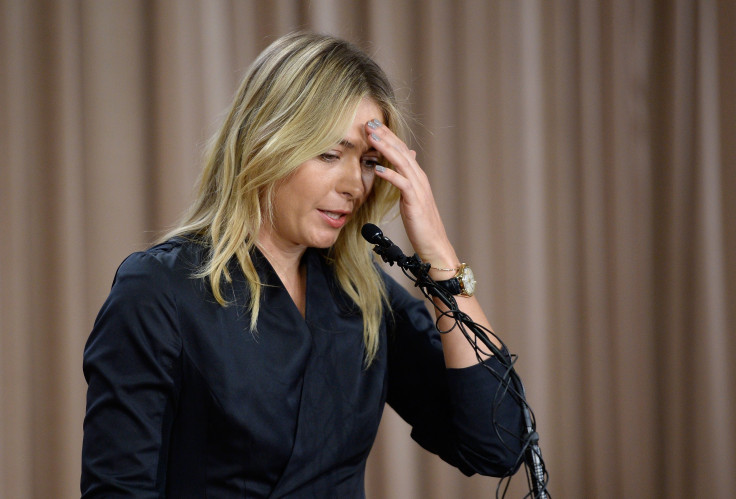Maria Sharapova Blasts Media Coverage Of Doping Case In Open Letter

Barely a week after admitting to failing a doping test at the Australian Open, Maria Sharapova accused the media of failing to accurately report the facts about the event in an open letter on her Facebook page Friday.
The former world No. 1 tennis star received a notice last week that she tested positive for meldonium, a blood flow-promoting drug she has been taking for 10 years for numerous health issues. At the start of 2016, meldonium was added to the World Anti-Doping Agency's banned list as it aids oxygen uptake and endurance.
Sharapova took full responsibility for her mistake at a news conference Monday in Los Angeles and said she had simply missed the change in regulations.
The five-time Grand Slam-winner called media coverage of the incident "distorted and exaggerated" and denied getting five warnings that the drug was about to be banned. She also criticized the tennis authorities for making the relevant information "too hard to find."
"The communications? They were buried in newsletters, websites, or handouts," she wrote.
"In order to be aware of this 'warning,' you had to open an email with a subject line having nothing to do with anti-doping, click on a webpage, enter a password, enter a username, hunt, click, hunt, click, hunt, click, scroll and read,” she said Friday, in the letter.
Sharapova, who will be placed under a provisional ban from March 12, could face a four-year ban for taking the drug, which could prevent her from competing for Russia at the Rio Olympics.
The 28-year-old said she had been taking Mildronate, the brand name of Latvian-made cardiac drug meldonium, since 2006. She said her family doctor recommended it because of recurring illnesses, low magnesium, irregular electrocardiogram results and a family history of diabetes.
On Friday, Sharapova reiterated that she had "no excuses" for failing to be aware of the change in regulations, but insisted she had only taken the heart drug "in the low doses recommended."
Several sponsors, including Nike, have suspended contracts with Sharapova until her name is cleared of the charges. John Haggerty, Sharapova’s lawyer, told the Wall Street Journal that her defense would rely in part on her willingness to admit this error.
“In our view, there is no possibility for a four-year sanction because this is completely not intentional,” he told the Journal, adding, “We’re now in the world of zero-to-two” years of suspension.
© Copyright IBTimes 2024. All rights reserved.





















